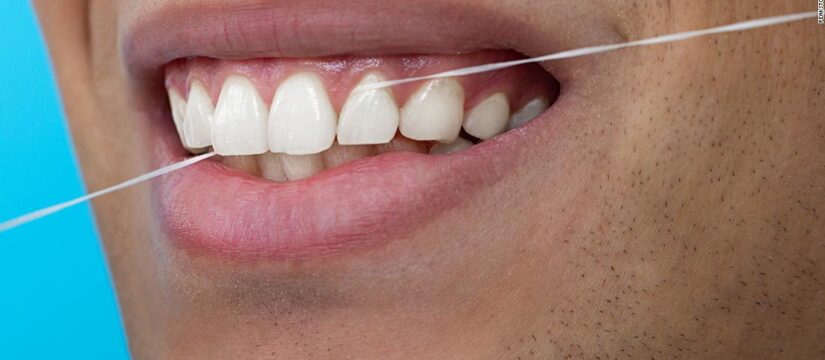
The most forgotten step in our dental care routine, and maybe the most underestimated.
Flossing helps with removing food and bacteria stuck in-between our teeth that daily brushing misses. Leaving the food and bacteria over time can lead to a few avoidable issues, such as bad breath, gum disease and can lead to decay. The bacteria hiding between our teeth feeds on sugar, producing acid which is what is harmful to our teeth and gums. Skipping flossing allows the bacteria to thrive, meaning the acid waste product it leaves behind breaks down the layers of tooth causing decay. The bacterial toxins and acid left behind can also cause gum disease as they irritate the gums and cause inflammation. Flossing in the areas your toothbrush can’t reach helps to prevent tooth decay, gum diseases and bad breath.
When Should I Floss and How Often?
We recommend flossing once a day, in the evening after dinner. We recommend flossing in the evenings so the bacteria isn’t left for an extended period of time whilst sleeping, we also suggest flossing before brushing to assist in removing any debris left behind from flossing and allowing the toothpaste to reach in-between teeth. We do understand creating a new habit is sometimes difficult, so we suggest starting out by flossing once a week and building up to once every night over time.
Why do my Gums Bleed when I Floss, am I Damaging them by Flossing?
Flossing does not damage the gums when done correctly, when flossing it is most important to be gentle and to not rush it. There should be no need for excessive force, the floss should slide gently along each tooth surface and just below the gums. Bleeding from flossing usually occurs when being too rough or rushed with the floss and causing trauma to the gums, or if there is pre-existing gum disease. Gum disease is due to bacteria and plaque left on teeth causing gum inflammation, so keeping up with flossing will overtime assist in the healing of the gums and help to reduce inflammation and stop the bleeding.
This is why flossing is an integral part of our dental hygiene routine, alongside brushing twice a day and regular dental check-ups. Speak with one of our friendly dentists at Coomera Dental Centre about which flossing option is best suited for you.
